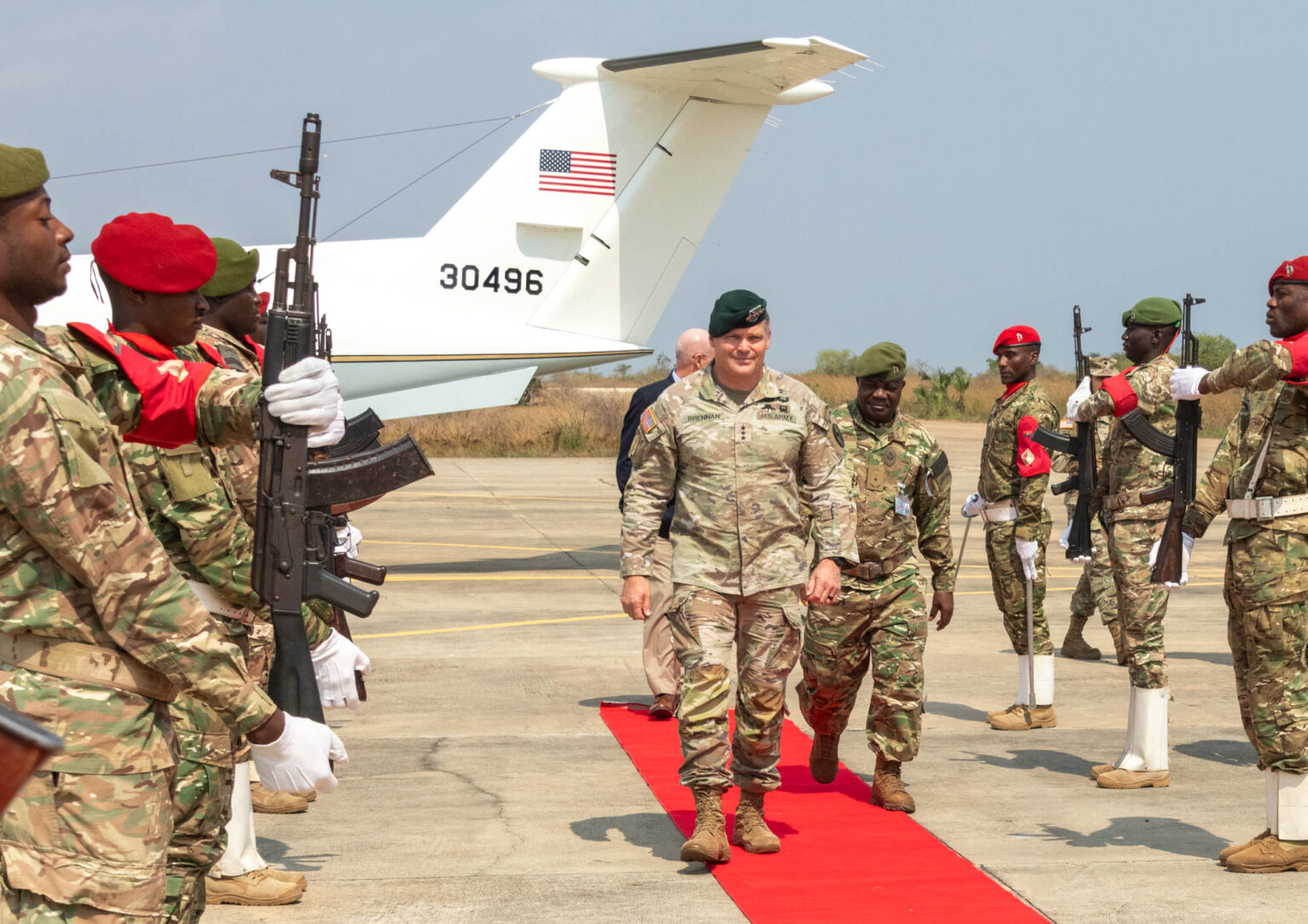By Pearl Matibe in Washington D.C.
In a development poised to deepen African-led security cooperation, a senior U.S. defence official has confirmed that the U.S. state of Ohio will become Angola’s official partner in the Department of Defense’s State Partnership Program (SPP).
This long-term program links U.S. states with foreign nations to strengthen security ties while fostering economic and societal collaboration.
Two of U.S. Africa Command’s (AFRICOM) highest-ranking leaders told journalists about their official visit to Namibia and Angola, and that Angola would partner with one of the state of the United States; Lieutenant General John W. Brennan, Jr., AFRICOM’s Deputy Commander, and Ambassador Robert K. Scott, Deputy to the Commander for Civil-Military Engagement. The two envoys—both experienced in African affairs—spoke to journalists after concluding their engagements in the region.
“We had a great visit – first to Namibia and then to Angola,” Brennan said. “It’s a long time in the making. We’ve tried to get down there several times, but events overcame us a couple of times with travel.”
Their message was consistent and pointed. AFRICOM is shifting to an approach grounded in collective defence through cost-effective, African-led solutions that minimize direct U.S. military involvement.
“What struck me in the visit,” Scott said, “was how tightly interlocked security is with prosperity and economic development. We saw this especially with maritime and trade issues—from Walvis Bay in Namibia to the Lobito Corridor in Angola.”
While in Angola, the delegation met with top government and military officials, including Secretary of State for National Defence José Maria de Lima, Secretary of State for External Affairs Esmerelda Mendonça, and General José Maria Marques, head of Patriotic Education. Discussions focused on regional security, maritime cooperation, and defence modernization.
A key theme throughout the trip was U.S. support for African-initiated solutions. When asked how the U.S. ensures partnerships do not appear one-sided, Brennan explained, “In the security sector, we assess the security needs of our partners. Then we provide options—equipment, training, advisory support—based on those assessments. Every exercise that we execute is African-led, partner-led, and ally-enabled.”
This emphasis on partnership, rather than patronage, was echoed on the ground. In Luanda, Brennan and Scott traveled to a training site near Cabo Ledo, where they observed Angolan and U.S. Special Forces in a live-fire exercise conducted under the Joint Combined Exchange Training (JCET) program.
“This marks the fifth JCET between our two nations since 2022,” Brennan noted. “Exercises like these sharpen readiness and build interoperability.”
But the most transformational initiative may be Angola’s new entry into the State Partnership Program, with Ohio as its official U.S. partner. Under the SPP, Ohio’s National Guard units will collaborate with Angola’s military, while also creating new linkages across education, industry, and civil society.
“It’s an incredible initiative,” said Scott. “Not only do you have military-to-military exchanges, but also governors, universities, and business leaders from U.S. states engage. Angola is about to benefit from that with Ohio.”
The visit also highlighted infrastructure diplomacy. In Angola, the delegation was briefed on the Lobito Corridor, a massive trade route being modernized to connect Zambia and the eastern DRC with the Atlantic Ocean.
“We heard that the average time to bring goods—whether agricultural products or copper—from the DRC border to Lobito has been cut from 28 days to seven,” Scott shared. “That’s transformative.”
AFRICOM’s efforts, both leaders emphasized, are not just about defence—they are about creating conditions for long-term regional stability and economic growth. This message may resonate across Southern Africa, including landlocked nations like Zimbabwe, where infrastructure and peacekeeping are increasingly interwoven.
Brennan also addressed the disinformation campaigns by global competitors:
“At AFRICOM, we like to have our actions speak for themselves,” he said. “We also do our best to refute false information that Russia and China put out about what we are, and what we do on the continent. But we don’t spend nearly the amount of money they do—we rely on truth, and our network of allies and partners.”
As the visit concluded, one truth stood out—the United States is not just engaging Africa—it is listening.
“This is about listening, partnering, and helping one another grow stronger—together,” Brennan said.
And with the State of Ohio’s now formally joining hands with Angola through the SPP, a new chapter begins—one co-written by African priorities and American partnership.
Pearl Matibe is a Washington, D.C.-based geopolitical analyst and correspondent covering Congress, the Pentagon, State Department, and White House, with expertise in foreign and defence policy. Follow her on Twitter: @PearlMatibe.



